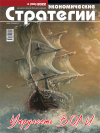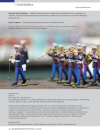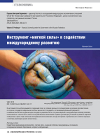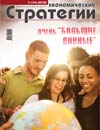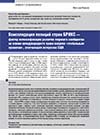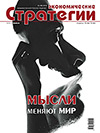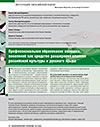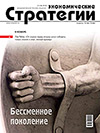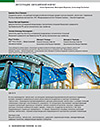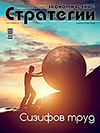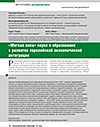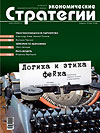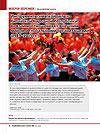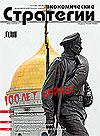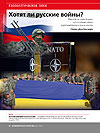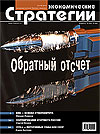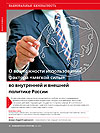Oorfene Deuce’s Mistake, or Some Remarks on Country Image
DOI: https://doi.org/10.33917/es-4.184.2022.28-35
In the proposed material, the author draws attention to the fact that in the conditions of recent forced reputational losses for Russia, the problem of forming an attractive national image becomes extremely relevant. The author examines the position of Russia in the field of national image in comparison with a number of foreign states. Based on the approaches of the theoretical founder and leader of country branding, S. Anholt, the author reviews the state of affairs in various spheres of Russian life, and concludes that the most promising areas for the formation of a new positive image of Russia are the sphere of culture and the tourism industry.
Источники:
1. Nye J. Bound to Lead: The Changing Nature of American Power. New York, Basic Books, 1990.
2. Nye J. Soft Power: The Means to Success in World Politics. New York, Public Affairs Group, 2004.
3. Russkie v Amerike. Kniga sudeb [Russians in America. Book of Fates].Comp. V. Levin. Minsk, Smolensk, 1996, p. 190.
4. Kotler Ph., Haider D.H., Rein I.J. Marketing Places: Attracting Investment, Industry, and Tourism to Cities, States and Nations. Free Press, 1993.
5. Ward S.V., Ward S. Selling Places: The Marketing and Promotion of Towns and Cities. 1850–2000. Taylor & Francis, 1998.
6. Anholt S. Places: Identity, Image and Reputation. London, Palgrave Macmillan, 2009.
7. Germany maintains top “nation brand” ranking, Canada and Japan overtake the UK to round out the top three. Ipsos, available at: https://www.ipsos.com/en/nation-brands-index-2021.
8. The Good Country Index, available at: https://index.goodcountry.org/
9. The Good Country Equation: How We Can Repair the World in One Generation. Berrett-Koehler, 2020.
10. Saimon Ankhol’t: Problema Rossii v tom, chto ee schitayut obuzoi [Simon Anholt: Russia’s Problem is That it is Considered a Burden]. SNOB, available at: https://snob.ru/selected/entry/56182/
11. Otchet o rezul’tatakh ekspertno-analiticheskogo meropriyatiya “Opredelenie osnovnykh prichin, sderzhivayushchikh nauchnoe razvitie v Rossiiskoi Federatsii: otsenka nauchnoi infrastruktury, dostatochnost’ motivatsionnykh mer, obespechenie privlekatel’nosti raboty vedushchikh uchenykh” [Report on Results of the Expert-analytical Event “Identification of the Main Reasons Hindering Scientific Development in the Russian Federation: Assessment of the Scientific Infrastructure, Sufficiency of Motivational Measures, Provision of Attractiveness of the Leading Scientists’ Work”]. FGOSVO, available at: https://fgosvo.ru/uploadfiles/Work_materials_disscusion/sp.pdf.
12. Muzychuk V.Yu. Finansirovanie kul’tury v Rossii: shag vpered i dva nazad [Financing Culture in Russia: One Step Forward and Two Steps Back]. Zhurnal NEA, 2019, no 1(41), pp. 208–215.
13. Governance Index: World Map. SOLABILITY, available at: https://solability.com/the-global-sustainable-competitiveness-index/the-index/governance-capital.
14. Reiting turisticheskikh stran [Rating of Tourist Countries]. TouristicLog, available at: http://www.alexeytour.ru/strany_mira_tour-rating.html.


